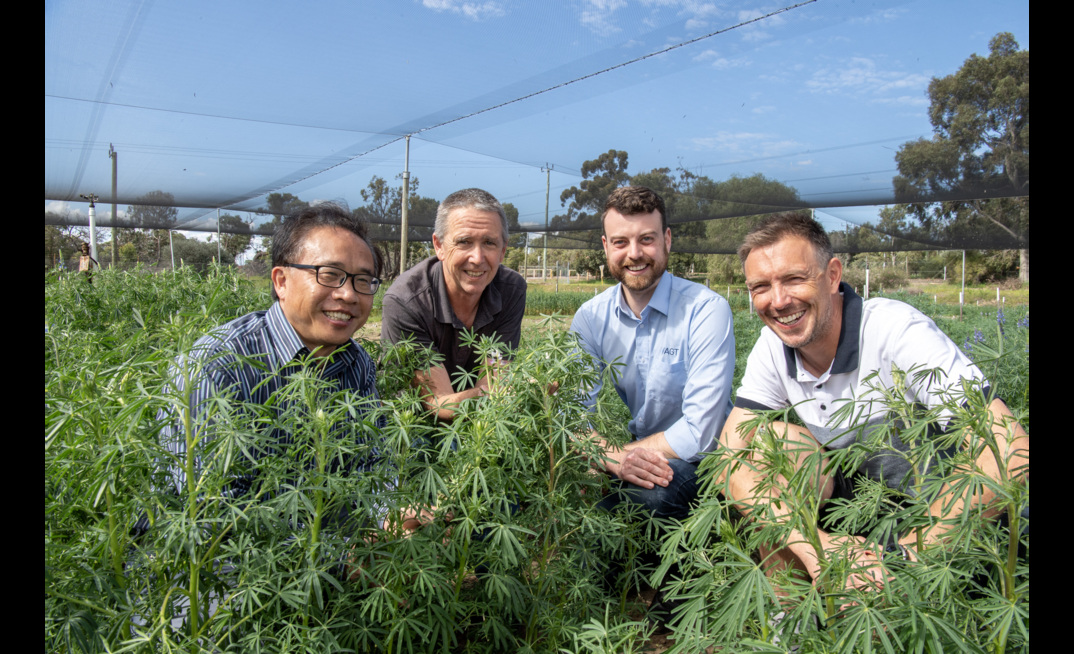The five-year initiative is a collaboration between the Department of Primary Industries and Regional Development (DPIRD), Curtin University, Murdoch University and plant breeding company Australian Grain Technologies (AGT).
The project has investment from the Grains Research and Development Corporation (GRDC) and WA Agricultural Research Collaboration.
DPIRD research scientist, Geoff Thomas, said the research aimed to improve the disease resistance of narrow-leafed lupin and help deliver improved varieties for growers.
"The outcomes from this project will be shared with prebreeders and breeders to reduce the impacts of the diseases Phomopsis, Cucumber Mosaic Virus (CMV), Anthracnose and Sclerotinia on the lupin industry," Thomas said.
"Better disease resistance will reduce potential crop losses, improve grain quality and ultimately improve productivity and the economics of lupin production."
Researchers will screen and genotype a core set of germplasm selected from cultivars, breeding lines and wild relatives to identify resistance genes to the four diseases - with 500 lines initially chosen for testing.
The project will develop high-throughput phenotyping methods, deploying traditional methodologies, artificial intelligence and molecular techniques to provide effective screening tools.
Genomic data and modelling tools will be used to identify resistance genes and develop molecular markers for marker-assisted selection to help breed elite cultivars.
DPIRD and Curtin's Centre for Crop and Disease Management (CCDM) will focus on the phenotyping components to develop robust screening methods.
CCDM project leader, Dr Lars Kamphuis, said the team would focus on developing phenotyping techniques for the broad host range pathogen Sclerotinia.
"We are excited to be part of this collaborative team that will work closely with the AGT lupin breeding program to reduce the economic impact of the key disease this crop faces," Dr Kamphuis said.
Murdoch University will lead the genetic analysis of Phomopsis, CMV and Anthracnose resistance.
Professor Chengdao Li said it was exciting for the Western Australian lupin research teams to use its own technical advantages and to work together to deliver genetic solutions to major lupin diseases.
"The project outputs will not only provide new genetic resources but also precision tools to breed next generation of lupin varieties faster to meet the future disease challenges for lupin growers," Professor Li said.
GRDC genetic technologies manager, Dr Camilla Hill, emphasised that the project's goal is to significantly slash the impact of these diseases on the narrow-leafed lupin industry.
"Lupins are a vital component of WA's agricultural landscape and can thrive in poor soils where most other legumes struggle to grow," Dr Hill said.
"GRDC's investment in this project is geared towards enhancing grower outcomes by streamlining disease control and bolstering yield stability in future narrow-leafed lupin varieties."
WA farmers are a significant producer of lupins, which as a legume, are a commonly used as a break crop and to put nitrogen into the soil. Inclusion in human food markets is an emerging opportunity for lupins.
























